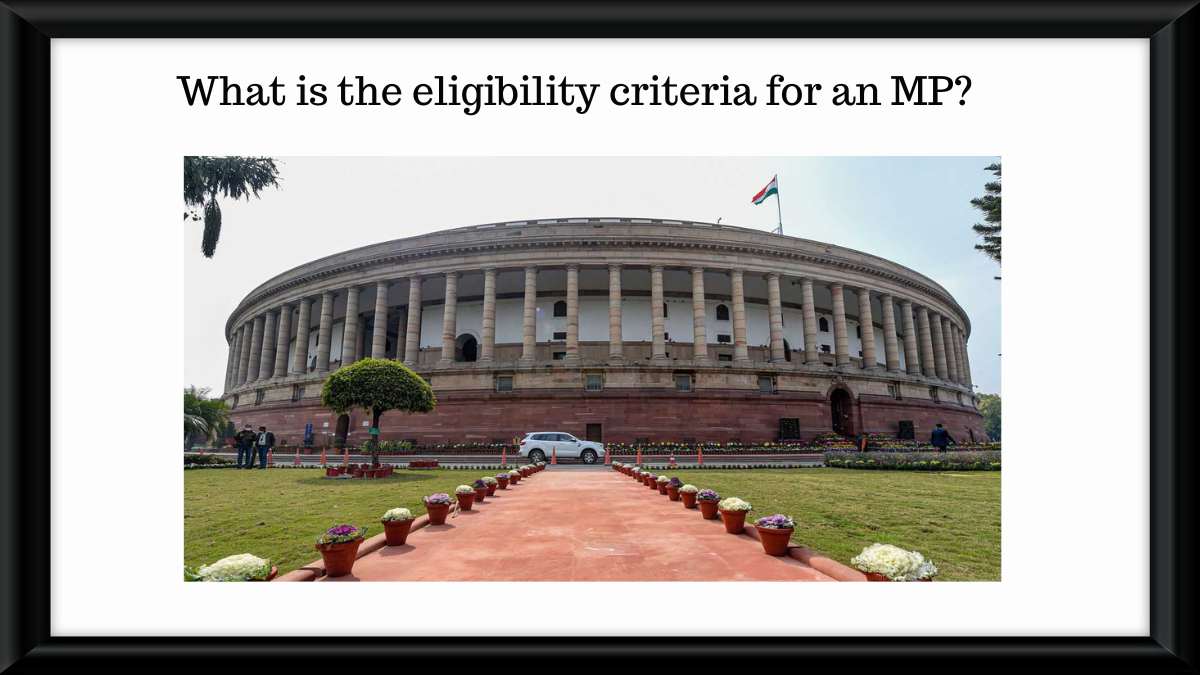The Indian Parliament is the supreme legislative body of the country and consists of two chambers: Lok Sabha (lower house) and Rajya Sabha (upper house). Members of Parliament are members of these chambers who represent an constituency in Parliament. This article will cover the eligibility criteria for parliamentarians, their responsibilities and the grounds for disqualification.


Learn about eligibility criteria, reasons for disqualification and more
A Member of Parliament plays a very powerful role in a parliamentary democracy like India. There are 542 members in Lok Sabha. All of them are members of parliament. They are elected directly by the country’s citizens on the basis of universal adult suffrage.
Whereas Rajya Sabha consists of 250 members who are directly elected by members of state legislative assemblies. In this article, you will learn about the eligibility criteria to become an MP, your responsibilities, and your reasons for disqualification. So, without further ado, let’s get started.
Members of Parliament: eligibility criteria
According to Article 84 of the Constitution, people are eligible to become members of Parliament if:
- They are citizens of India.
- Falling below the age limit of 30 years in case of Rajya Sabha and 25 years in case of Lok Sabha
- Possess additional qualifications under parliamentary laws. These qualifications are as follows;
- The first condition is that only electors can be elected. Therefore, candidates must be registered voters in a parliamentary constituency and must have the right to vote. If for any reason they lose eligibility to vote, they would also lose eligibility to run for election.
- It is not necessary for a person to be registered as a voter in the same electoral district. This applies to both Lok Sabha and Rajya Sabha.
Members of Parliament: Responsibility
Some of the main responsibilities of members of parliament are;
- Legislative function: The main function of a deputy is to act as a legislator. According to Article 111 of the Indian Constitution, a bill becomes a law only after being passed by both houses of parliament and approved by the president. According to article 100, for an ordinary bill to be approved, more than 50% of the parliamentarians present in the chamber must vote in favor of that bill for it to be approved. However, in the case of the constitutional amendment bill provided for in Article 368, a special majority of parliamentarians (more than 50%) must vote in favor of the bill to be approved. Furthermore, the role of parliamentarians comes into play during the introduction of a bill in either house of parliament. They debate various provisions of the bill and may also suggest amendments to the bill.
- Deliberative function: Under the Indian constitutional scheme, the Government is responsible to the legislature. Here, the role of MPs is to ask questions of government ministers through parliamentary interventions such as zero hours, question hours, no-confidence motions, etc. These questions may also be related to the constituency that the parliamentarian represents.
- Electoral role: Another responsibility of parliamentarians includes participating in the election of the president and vice president. A Lok Sabha MP elects the president and vice president. However, a Rajya Sabha MP elects the Deputy Chairman of Rajya Sabha.
Members of Parliament: grounds for disqualification
According to Article 102 of the Indian Constitution, Members of Parliament can be disqualified from office under the following conditions;
- If the court declares them mentally ill.
- They hold any lucrative office under the Government of India or the Government of any State.
- They are undischarged insolvents.
- They are no longer Indian citizens and have voluntarily acquired the citizenship of another state.
- They are disqualified by or under any law made by Parliament.
- They have been found guilty of certain crimes and corrupt practices.
- They have been condemned for promoting rivalry between groups.
- They have been dismissed from government service for reasons of corruption and disloyalty to the State.
Categories: Optical Illusion
Source: ptivs2.edu.vn

